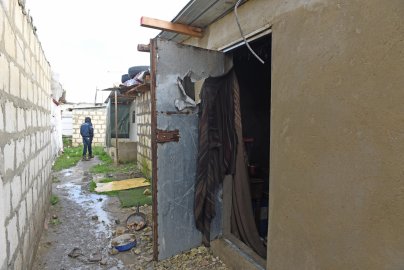Italy Allocates Funds for Migrant Laborer Housing Solutions
Italy has recently made significant strides in addressing the needs of migrant laborers by allocating funds aimed at providing alternative accommodation solutions. This initiative is part of a broader effort to ensure that migrants have access to safe and secure housing, which is crucial for their well-being and integration into Italian society.
The Importance of Safe Housing for Migrants
Migrants often face numerous challenges when seeking housing. Many are vulnerable to exploitation and discrimination, which can lead to precarious living conditions. By investing in housing solutions, Italy aims to:
This funding will pave the way for programs that prioritize the needs of migrant workers while also addressing the housing crisis in various regions of Italy.
Funding and Implementation
The allocated funds are part of the broader European Union strategy to manage migration effectively. Italy’s Ministry of Interior has emphasized the importance of collaboration between local governments and non-governmental organizations (NGOs) to implement these housing solutions effectively.
The funds will be used for:
This comprehensive approach not only addresses the immediate housing needs but also contributes to the long-term integration of migrants into Italian society.
Challenges Ahead
Despite this positive development, challenges remain. Some local communities express concerns regarding the influx of migrants and the accompanying housing needs. Addressing these concerns requires a multifaceted approach that includes:
By addressing these challenges head-on, Italy can create a sustainable model for migrant accommodation that benefits both migrants and local communities.
Looking Ahead: The Future of Migrant Housing in Italy
As Italy moves forward with these housing initiatives, it is essential to monitor their effectiveness and adapt strategies as necessary. Continued investment in migrant housing will not only improve the lives of those who come to Italy seeking a better future but will also contribute to the overall stability and prosperity of the nation.
The allocation of funds for alternative accommodation solutions for migrant laborers signifies a commitment to humanitarian values and the recognition of the vital role that migrants play in the economy.
In a world where migration is increasingly common, such initiatives are critical in promoting dignity, respect, and a sense of belonging for all individuals, irrespective of their background.
Conclusion
Italy’s decision to allocate funds for migrant laborer housing solutions is a commendable step towards improving the living conditions of this vulnerable group. By ensuring that migrants have access to safe and secure housing, Italy not only fulfills a humanitarian obligation but also strengthens its own social fabric. As the nation embraces these changes, the focus must remain on fostering integration and promoting the positive contributions of migrants to society.
Through collaboration, awareness, and continuous support, Italy can set a precedent for how countries can effectively address the housing needs of migrant laborers while promoting social cohesion and economic growth.










